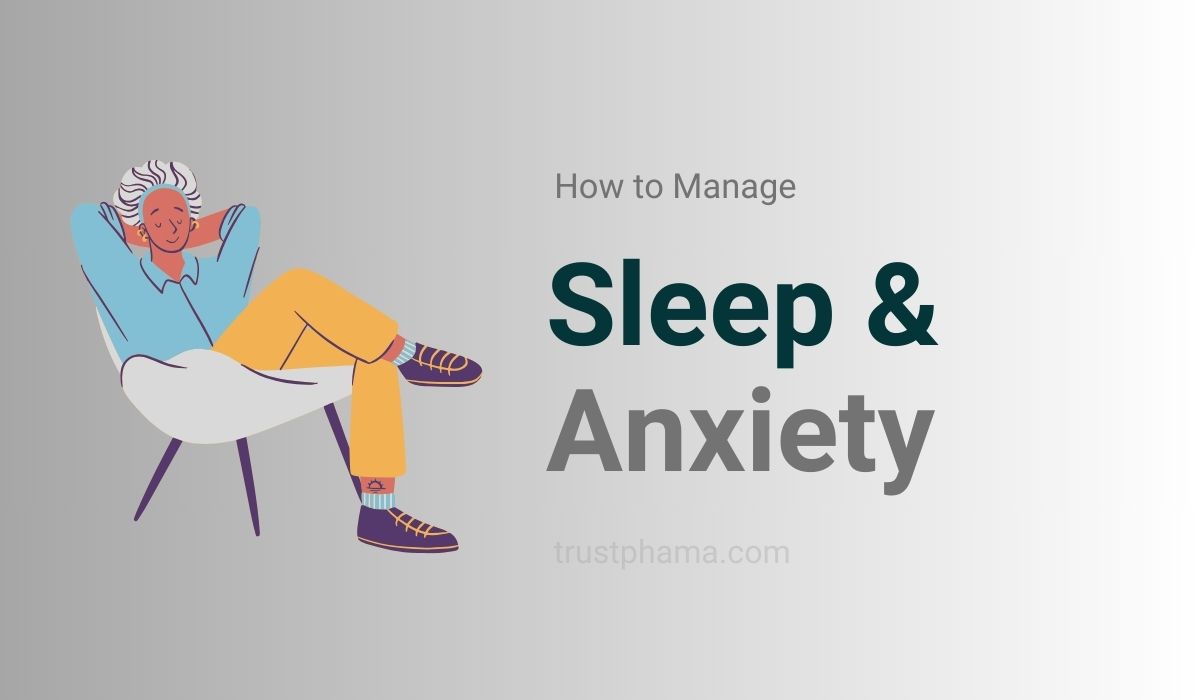Anxiety and panic attacks can significantly disrupt daily life, often leading to sleepless nights and overwhelming stress. For many, finding effective relief is crucial. One medication that is commonly prescribed for managing anxiety and promoting sleep is clonazepam. In this blog, we’ll explore how clonazepam for sleep, and its role in treating anxiety and panic attacks.
What is Clonazepam?
Clonazepam is a medication belonging to the benzodiazepine class. It’s primarily used to treat panic disorder, seizures, and anxiety disorders. It acts on the central nervous system (CNS) to produce calming effects, which can be particularly beneficial for individuals struggling with anxiety and sleep disturbances.
How Does Clonazepam Work?
Clonazepam exerts its effects primarily by enhancing the activity of a neurotransmitter called gamma-aminobutyric acid (GABA). GABA is the main inhibitory neurotransmitter in the brain, meaning it helps to reduce neuronal excitability. Here’s a closer look at how this process benefits those dealing with anxiety and sleep issues:
- Enhanced GABA Activity: By increasing GABA’s inhibitory effects, clonazepam promotes relaxation and reduces anxiety levels. This calming effect can be particularly helpful during acute anxiety episodes or panic attacks, allowing individuals to regain control over their emotions.
- Sedative Effects: Clonazepam has sedative properties that can help induce sleep. For individuals whose anxiety leads to insomnia, taking clonazepam can facilitate a more restful night’s sleep by calming the mind and body.
- Muscle Relaxation: The muscle relaxant effects of clonazepam can also contribute to overall physical relaxation, helping individuals feel more at ease and comfortable, further promoting sleep.
Clonazepam for Sleep in Anxiety and Panic Attacks
For those experiencing anxiety and panic attacks, sleeplessness can create a vicious cycle—lack of sleep can exacerbate anxiety, which in turn leads to further sleep issues. Clonazepam can interrupt this cycle by:
Clonazepam works by enhancing the effects of gamma-aminobutyric acid (GABA), a neurotransmitter in the brain that promotes relaxation and sleep. Here’s how it works:
- Providing Quick Relief: In moments of acute anxiety or panic, clonazepam can offer quick relief, making it easier to navigate these challenging situations.
- Improving Sleep Quality: By facilitating sleep, clonazepam helps individuals feel more rested and better equipped to handle anxiety-provoking situations the next day.
- Brain Activity Reduction: Clonazepam binds to specific receptors in the brain, increasing the activity of GABA. This helps to reduce overall brain activity, leading to a sense of calm and relaxation.
- Anxiety and Panic Suppression: By decreasing brain activity, clonazepam can help suppress the symptoms of anxiety and panic attacks. This includes reducing feelings of fear, worry, and physical symptoms like rapid heartbeat, sweating, and shortness of breath.
Considerations and Cautions
While clonazepam can be effective for managing anxiety and promoting sleep, it’s important to approach its use with caution:
- Short-Term Use: Due to the potential for dependence and tolerance, clonazepam is typically prescribed for short-term use or in specific situations.
- Side Effects: Common side effects can include drowsiness, dizziness, and coordination issues. It’s crucial to discuss these with a healthcare provider.
- Consult a Professional: Always consult with a healthcare professional before starting or discontinuing clonazepam or any other medication. They can provide guidance tailored to individual needs and circumstances.
Conclusion
Clonazepam can be a valuable tool in managing anxiety and promoting sleep, helping individuals reclaim their lives from the grip of panic attacks and sleepless nights. However, like all medications, it should be used responsibly and in conjunction with a comprehensive treatment plan that may include therapy, lifestyle changes, and other interventions. By understanding how buy clonazepam for sleep works, individuals can make informed decisions about their mental health and well-being.
